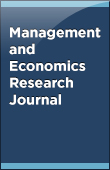


Special Issue S4: “Global Trade Wars - A Case of Sino-US Trade War”
The US–China trade relationship has expanded immensely after China’s reformation of its economy and liberalization in 1979. A very huge amount of trade takes place between the United States and China in terms of monetary value and quantity. China benefits the United States in several forms other than just trade, such as US firms seeking investment opportunities in China for their assembly units. Subsequently, China holds a huge amount of US treasury securities, and purchases US debt securities, which helps them to keep their interest rates low. However, even after the development of such a trade relationship, the United States has certain concerns relating to China’s intentions. From the United States’ point of view, China is not involved in a fair practice of trade. China has imposed state-directed policies that bend the flow of trade and investment opportunities. Furthermore, the United States has allegations against China pertaining to the issue of intellectual property rights along with mixed records on implementation of WTO obligations, establishment of procedures for impacting the value of its currency and restrictions on FDI. The United States claims that such policies from China’s side make a great impact on the US economy and thus is the concern of the Congress. The current president, Mr. Donald J. Trump, has pledged to promote the free and fair trade policy. So his administration has taken some severe steps to reduce the US bilateral trade deficit. The president first announced the imposition of tariffs on steel and aluminum at 25% and 15%, respectively. To this action of the United States, China retaliated by raising the tariffs on various goods that are imported from the United States. Furthermore, the United States claimed that it would take actions against Chinese intellectual property rights policies that could be a hindrance to the US stakeholders. Later, the United States released a two-stage plan to impose tariffs on Chinese imports that would directly affect Chinese industrial policies for which again there was retaliation by China by releasing their own two-stage plan for American imports that would adversely affect American industries. This paper is an attempt to analyze the effect of the trade war between the United States and China and briefly discusses about the impact of this war on China and the probable measures implemented by the country.
Read Article